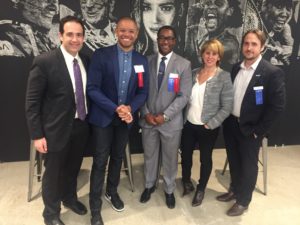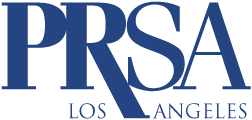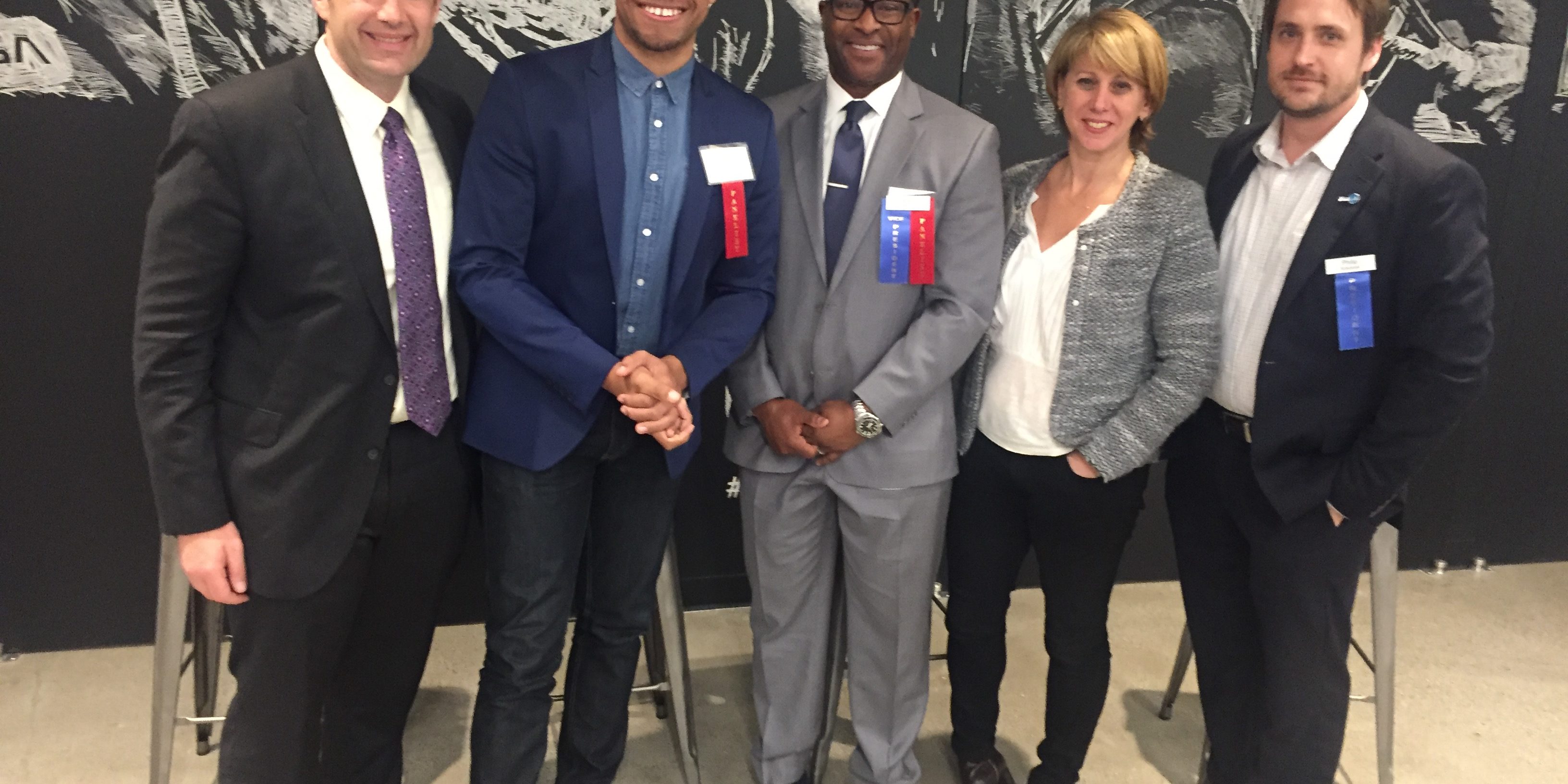
(From left) EVP of Earned Media Strategy at Weber Shandwick Dave Reddy; Correspondent on NBC BLK’s Back2Reality Jarrett Hill; President and CEO of Lancaster Caldwell Group Alan Caldwell; Founder and CEO of The Wrap Sharon Waxman; and PRSA-LA President Philip Sokoloski
Two of Los Angeles’ leading PR executives joined two of the city’s top entertainment journalists on February 15 at General Assembly in Downtown LA to dissect the dramatic changes underway in news coverage, and how these changes are redefining “news” and what it means to be a “news provider.”
The panel featured The Wrap Founder and CEO Sharon Waxman; NBC BLK’s Back2Reality Correspondent Jarrett Hill; Lancaster Caldwell Group President and CEO Alan Caldwell and Weber Shandwick EVP of Earned Media Strategy Dave Reddy.
Sharon, who served as moderator, began by asking the panelists to define “Fake News.”
Each panelist shared their version, making sure the audience understood the difference between lies and inaccuracies. Caldwell and Waxman went on to explain that reporters are pressed to be first on a story, and have only a limited amount of time to get their story out before the competition. It’s not unusual for a reporter to have to update a story and address inaccuracies once new information has been presented. However, the panelists agreed that lying involves knowingly giving incorrect information to position something in a deliberate manner. Reddy added that once one lie is given, more may have to follow in order to keep up appearances.
Reddy also added that he constantly tells his clients to tell the truth. As hard as it may be, without the truth you damage relationships, especially with media. Waxman recalled a time when a company knowingly gave her false information. She no longer works with them.
Waxman then steered the conversation by asking panelists how the Trump Administration and its coverage in the news has affected them.
Hill, who was made famous by blowing the whistle on Melania Trump’s Republican National Convention speech, shared how he found out portions of the speech were plagiarized . A strong supporter of then First Lady Michelle Obama, Hill immediately recognized a line in Melania’s speech that came from Obama’s 2008 Democratic National Convention Speech. When he turned to Twitter to expose the plagiarism, his tweets immediately went viral. Hill also shared a YouTube video that placed the Michelle Obama and Melania Trump speeches side by side as they read the same words.
Staying on Melania Trump, Waxman also asked how we should help our clients respond to Twitter attacks. Waxman gave the example of Nordstrom, which had come under fire recently from President Trump when he tweeted about the department store’s decision to discontinue carrying Melania Trump’s clothing line. Caldwell shared that he counsels clients to always be prepared and respond quickly. He explained how larger clients draft statements that need to go through review channels ending with the legal team’s final stamp of approval. “The entire process could easily take four hours or more, sometimes a full day,” Caldwell observed, “but by that time, the damage was already done.” Caldwell suggested that clients be proactive by creating a crisis communications plan that includes social media and empowers the appropriate people to act quickly.
Reddy went on to say that it’s imperative to learn how to show readers, especially young adults, how to spot fake news on social media or unreliable media sources. Hill recommended that readers take the time to check links and sources for trustworthiness, and do a little digging for their own curiosity to learn more. Waxman countered saying that readers don’t have time to do that, and it shouldn’t be the reader’s responsibility. She went on to suggest that it should fall on the writers to check their own sources and remain credible.
The panel was closed by PRSA-LA Immediate Past-President Victoria Lelash, APR who reminded the audience that PRSA and its members must abide by the Code of Ethics. She went on to explain that the Code sets out principles and guidelines that uphold the core values of the ethical practice of public relations, including advocacy, loyalty, professional development, objectivity and, most importantly, honesty. She added that this is what will separate us from the rest.








